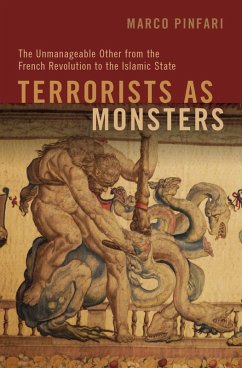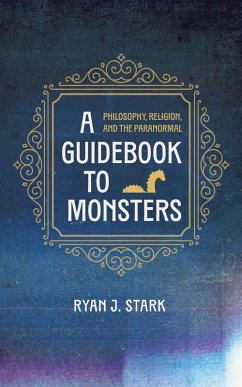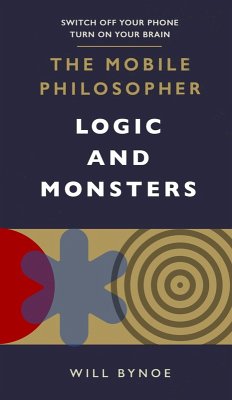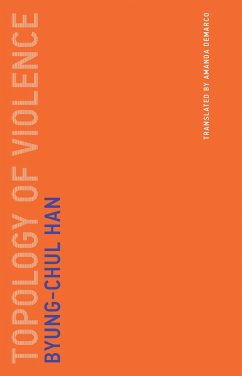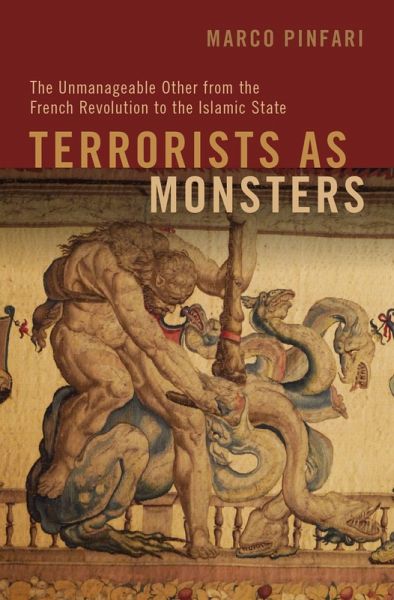
Terrorists as Monsters (eBook, ePUB)
The Unmanageable Other from the French Revolution to the Islamic State

PAYBACK Punkte
7 °P sammeln!
From the chilling threats of the "ISIS vampire" to the view of al-Qaeda as the "Frankenstein the CIA created," terrorism seems to be inextricably bound with monstrosity. But why do the media and government officials often portray terrorists as monsters? And perhaps more puzzling, why do terrorists sometimes want to be perceived as such? This book, the first of its kind, examines the use of archetypal metaphors of monstrosity in relation to terrorism, from the gorgons of Robespierre's "reign of terror" to the dragons and lycanthropes of anarchism, the beasts and blood-licking demons of ethnonat...
From the chilling threats of the "ISIS vampire" to the view of al-Qaeda as the "Frankenstein the CIA created," terrorism seems to be inextricably bound with monstrosity. But why do the media and government officials often portray terrorists as monsters? And perhaps more puzzling, why do terrorists sometimes want to be perceived as such? This book, the first of its kind, examines the use of archetypal metaphors of monstrosity in relation to terrorism, from the gorgons of Robespierre's "reign of terror" to the dragons and lycanthropes of anarchism, the beasts and blood-licking demons of ethnonational terrorism, and the hydras and Frankenstein's monsters of Islamic jihadism. Marco Pinfari argues that politicians frame terrorists as unmanageable monsters not only in an effort at cultural "othering" and dehumanization, but also to secure popular backing for rule-breaking behavior in counter-terrorism. The book also explores the way that terrorists themselves impersonate monsters, showing that several groups have pursued such a tactic throughout the history of terrorism. It contributes to a number of ongoing public debates by highlighting how, even when actors like the Islamic State present themselves as mad and irrational, their tactics remain in essence rational. Pinfari also provides an original historical outlook on the roots of monster metaphors and discusses several types of terrorism, including state terrorism, left-wing terrorism, anarchism, ethnonationalist terrorism, and white supremacist groups. In unpacking the functions played by monster metaphors and by their impersonation, Terrorists as Monsters helps the reader understand the political processes that hide behind the fangs.
Dieser Download kann aus rechtlichen Gründen nur mit Rechnungsadresse in A, B, BG, CY, CZ, D, DK, EW, E, FIN, F, GR, HR, H, IRL, I, LT, L, LR, M, NL, PL, P, R, S, SLO, SK ausgeliefert werden.





